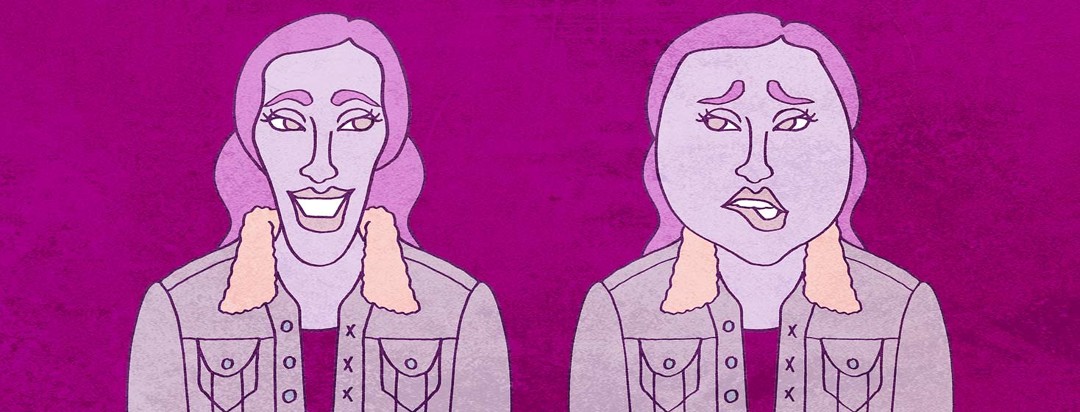Face to Face
A positive self-image is challenging under the best of circumstance, but when you have a disease like RA, self-image takes a hit from many angles.
One of those for me had to do with the changes I saw happening in my face. I know that may sound odd, but in the early stages of my journey with RA, I was put on high doses of a corticosteroid to counter the inflammation, swelling, and pain. It worked great! But my entire body changed in appearance, and my face was one of the most noticeable to me.
Moon face: a corticosteroid side effect
When you see mentions of a “moon face” as a side effect of corticosteroid use, it is the perfect description! My face went from slim and long to round as a full moon in less than two weeks! I remember looking in the mirror and wondering who was looking back at me? Why did my face seem puffy and red? I was devastated. Along with the pain and discomfort of RA, I now had a new me to contend with. My self-image was already unraveling, so how was I to cope with this fun new look?
Moon face signified that my life was changing
I clearly remember crying over this multiple times, which I now believe were tears of loss as much as anything related to my appearance. I knew this “new me” was likely to be around for some time, if not permanently. I knew that my life was changing and would never be the same, and the moon face was just the outward manifestation of that radical life change.
Having moon face impacted by self-image
I know that now, did not know that then. I was grieving and my self-image was in shreds. I was still in the prime of my life, in my early forties, and had always prided myself on taking care of how I looked, fitness being a big part of my life. Now, suddenly, that was all gone. What to do?
Corticosteroid side effects & RA in perspective
First of all, after wallowing in the misery for a bit (necessary in my opinion), I chose to take stock of my new reality. Was this indeed permanent? Maybe, maybe not. Turns out, I did have a bit of a moon face for many years; but as the use of corticosteroids lessened, so did the extreme face shape. I came to accept the new shape and realized that in the grand scheme of side effects of RA, it was not as bad as it first seemed.
What makes up our self-image?
Did I like it? Absolutely not. But I also found that, with make-up, I could offset some of the shape and it prompted me to try some new cosmetics, which was fun. Beyond that, it forced me to consider what really comprised one’s self-image. Is it all about our outward appearance? If so, can we change that? I think we can and with a disease like RA that influences our bodies’ appearance, it is necessary to successfully deal with those changes.
Self-image and the changes of rheumatoid arthritis
Over time I came to understand that my self-image was a lot more tied to my coping and management of RA, than my actual appearance. Armed with that newfound knowledge, I was able to accept the bodily changes as long as the RA was under control. My face looked better when I was rested, pain-free and successfully managing RA. That was sure an interesting development! That is true to this day.
With many of us dealing with chronic disease, our faces are the portals to our health, indicating how we feel in any given moment. So, in the end, my self-image was tied to my RA management as is so many other aspects of this disease. I had come face to face with yet another revelation along the journey.
Nan
Community Poll
What flare symptom do you wish you could avoid the most?

Join the conversation